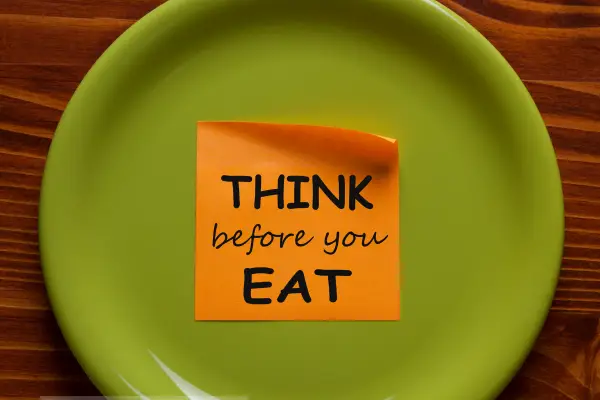Table of Contents
Understanding the Basics of a Balanced Diet for Weight Loss
Creating a balanced diet plan for weight loss involves understanding the fundamentals of nutrition. A balanced diet provides the necessary nutrients your body needs to function effectively while helping you lose weight. It includes a variety of foods in the right proportions to ensure you get essential vitamins, minerals, and other nutrients. Key components include:
- Fruits and Vegetables: Aim for a colorful plate. Different colors provide different nutrients.
- Whole Grains: Choose whole grains over refined grains for better fiber and nutrient intake.
- Protein Sources: Incorporate lean meats, fish, beans, and nuts to meet your protein needs.
- Dairy: Opt for low-fat or fat-free options to reduce calorie intake while still getting calcium.
- Healthy Fats: Use sources like olive oil, avocados, and nuts in moderation.
Transitioning to a balanced diet requires planning and dedication. It’s essential to understand the food groups and how to combine them effectively. This foundation will help you build meals that support weight loss without sacrificing nutrition.

Setting Realistic Weight Loss Goals
Before starting a diet plan, set realistic and achievable weight loss goals. Unrealistic goals can lead to disappointment and loss of motivation. Instead, focus on gradual weight loss. Aim to lose 1-2 pounds per week, which is considered safe and sustainable.
- Assess Your Current Diet: Keep a food diary for a week to identify your eating habits and areas for improvement.
- Calculate Calorie Needs: Use online calculators to determine your daily caloric needs based on age, gender, weight, and activity level.
- Create a Calorie Deficit: To lose weight, consume fewer calories than your body uses. A deficit of 500-1000 calories per day can help you achieve the desired weight loss rate.
Remember, weight loss is a journey. Setting small, incremental goals can lead to long-term success. Celebrate your progress and stay committed to your health.

Meal Planning and Preparation
Effective meal planning is crucial for a balanced diet and successful weight loss. Planning your meals helps you make healthier choices and avoid impulsive eating.
- Weekly Meal Prep: Dedicate time each week to plan and prepare your meals. This can save time and reduce stress during busy weekdays.
- Balanced Meals: Ensure each meal contains a balance of protein, carbohydrates, and healthy fats. This keeps you full and satisfied, reducing the temptation to snack on unhealthy foods.
- Portion Control: Be mindful of portion sizes. Use smaller plates and bowls to help control portions and prevent overeating.
Meal prepping allows you to stay on track with your diet. It also helps you avoid last-minute, unhealthy food choices. With a clear plan, you can enjoy a variety of nutritious meals throughout the week.

Incorporating Healthy Snacks
Snacking can be a part of a balanced diet if done correctly. Healthy snacks can keep your metabolism active and prevent overeating during main meals. Here are some healthy snack ideas:
- Fresh Fruit: Easy to carry and full of vitamins.
- Nuts and Seeds: High in healthy fats and protein, but watch the portion size.
- Vegetable Sticks with Hummus: Provides fiber and protein, keeping you full longer.
- Greek Yogurt: High in protein and can be paired with fruits or honey.
Choose snacks that complement your diet plan. Avoid processed snacks high in sugar and unhealthy fats. Healthy snacking helps maintain energy levels and prevents the feeling of deprivation.
Great Taste, No fillers! 7 Mega blends with 85 life changing ingredients and we made it affordable for allStaying Hydrated and Mindful Eating
Hydration plays a vital role in weight loss. Drinking enough water aids digestion, keeps you full, and helps prevent overeating. Aim to drink at least 8 glasses of water daily. Sometimes, thirst can be mistaken for hunger, leading to unnecessary calorie intake.
- Water: The best choice for hydration. Add lemon or cucumber for flavor.
- Herbal Teas: Can be a good alternative and provide various health benefits.
- Avoid Sugary Drinks: Soda and juice add unnecessary calories and sugar to your diet.
Mindful eating involves paying attention to what and how you eat. Eat slowly, savor each bite, and listen to your body’s hunger cues. Avoid distractions like TV or smartphones during meals. Mindful eating can help you enjoy your food more and recognize when you’re full, aiding in portion control and preventing overeating.
By following these guidelines, you can create a balanced diet plan that supports sustainable weight loss. Remember, consistency and patience are key. Celebrate small victories and stay focused on your health goals.
Flip your gut health, your weight, your mood and your life. Join us LIVE every Thursday and hear from Celebrity Mindset coach Laura St. John








